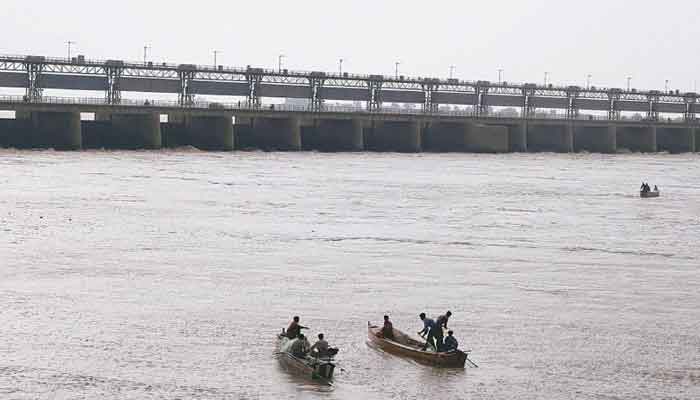
Punjab Accuses Sindh of Drawing Excess Water: A Letter to IRSA
In a recent development that has reignited tensions between Pakistan’s provinces over water distribution, the Punjab government has formally accused Sindh of drawing more water than its allocated share from the Indus River system. This allegation, detailed in a letter to the Indus River System Authority (IRSA), underscores the ongoing challenges in managing the country’s vital water resources.
The Allegations
According to the Punjab Irrigation Department, between April 1 and May 20, 2024, Sindh reportedly drew 3.560 million acre-feet (MAF) of water, surpassing its allocated share of 2.773 MAF by approximately 20%. This discrepancy is particularly concerning given the current water scarcity affecting the region. The letter also highlights that on May 31, Sindh’s demand was 140,000 cusecs, while IRSA was releasing 190,000 cusecs, more than double Sindh’s actual share .
Punjab further contends that Sindh has underreported water measurements at its reservoirs, specifically at the Guddu Barrage. The province claims that Sindh’s reported water losses are significantly higher than those observed in Punjab, suggesting potential discrepancies in water loss assessments .
Historical Context
The dispute over water allocation between Punjab and Sindh is longstanding. The Water Apportionment Accord of 1991 was established to equitably distribute the Indus River’s waters among Pakistan’s four provinces. However, the implementation of this accord has been fraught with challenges, including disagreements over water measurements and accusations of misreporting by both provinces.
In 2017, Sindh’s Senior Minister for Food and Parliamentary Affairs, Nisar Ahmed Khuhro, accused WAPDA of diverting Sindh’s water share to other regions, a claim that Punjab has consistently denied . Similarly, in 2019, Punjab lodged a complaint with IRSA, alleging that Sindh had installed outdated discharge tables at Guddu Barrage, leading to inflated water loss reports .
IRSA’s Role and Response
IRSA, established in 1992, is tasked with regulating and monitoring the distribution of water among the provinces. In response to Punjab’s allegations, IRSA has initiated investigations into the reported discrepancies. The authority has emphasized the importance of accurate water measurements and has called for increased transparency in reporting to ensure fair distribution .
Implications for Water Management
The current dispute highlights the complexities involved in managing shared water resources. Accurate measurement and reporting are crucial to ensure that each province receives its fair share. The ongoing tensions also underscore the need for improved cooperation and transparency among the provinces to prevent conflicts and ensure the sustainable use of the Indus River system.
In conclusion, the letter from Punjab to IRSA accusing Sindh of drawing excess water serves as a reminder of the challenges Pakistan faces in managing its water resources. As climate change and population growth place increasing pressure on the Indus River system, it is imperative that all stakeholders work collaboratively to address these issues and ensure equitable and sustainable water distribution for all provinces.







